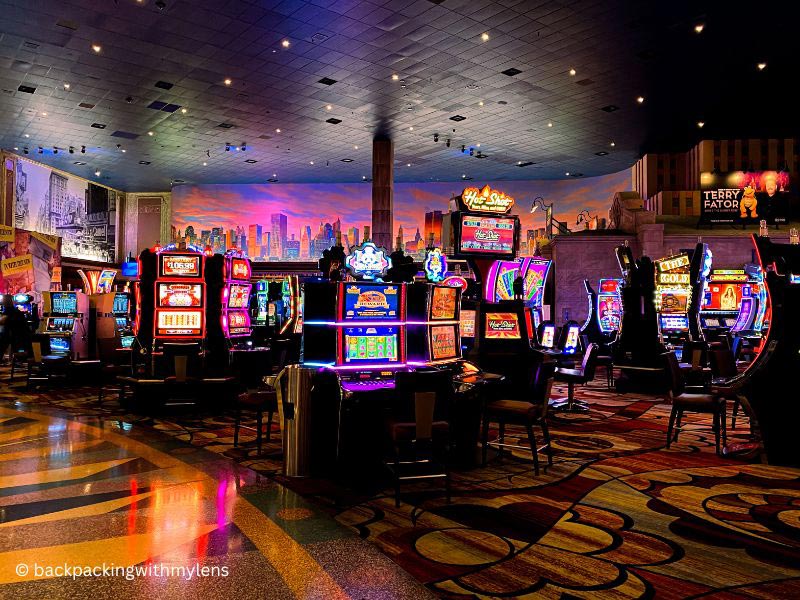
This realm of casino gaming has experienced a significant evolution in recent years, driven by technological progress and changing player tastes. As more players shift to digital platforms for entertainment, traditional casino activities are being increasingly adapted to satisfy the needs of a technology-oriented consumer base. This transition not just includes the shift from brick-and-mortar to digital environments but also encompasses the development of gameplay mechanics and user interaction techniques.
In this new digital age, game creators are harnessing innovative technologies to create engaging experiences that appeal with a varied spectrum of players. From web-based fruit machines with breathtaking visuals to interactive card activities that replicate the atmosphere of a real-life gambling hall, the modification process is changing how we view and enjoy gambling activities. As we navigate this fascinating journey, it is evident that the prospect of gambling lies in the seamless integration of cutting-edge technology with the timeless appeal of luck and strategy.
A Development of Casino Games
Gambling entertainment have experienced significant changes throughout the years, showing changes in tech, society, and player tastes. In early times, simple activities of luck were played using rudimentary items such as stones and bones. As societies progressed, so did the sophistication of these activities. The emergence of card games in the medieval period marked a key moment, culminating to the creation of well-known titles like poker and blackjack, which are still enjoyed in the present. Over the years, the design of casinos has also changed, shifting from tiny local venues to large, elaborate establishments.
The 20th century ushered a change in the world of casino games with the advent of digital gaming. Slot machines emerged as a popular attraction, fascinating players with their vibrant lights and sounds. This era also saw the emergence of gambling hotels, which combined high-end accommodations with a diverse array of casino options. The launch of video games further expanded the field, allowing for more complex designs and gameplay mechanics. These innovations not only attracted a wider audience but also altered the way gambling entertainment were played.
With the rise of the web in the late 1990s and early 2000, casino entertainment entered a new online phase. Online casinos appeared, providing participants with the convenience of gaming from their homes. This transition required game designers to rethink traditional designs and modify them for an engaging digital environment. Currently, advancements in tech, including smartphone gaming and VR, continue to shape the progress of gambling entertainment, creating engaging experiences that captivate players like never before.
Main Highlights of Virtual Casino Experiences
Virtual gambling experiences have changed the way players engage with gaming by delivering engaging experiences that mimic the rush of brick-and-mortar casinos. One of the most important features is the incorporation of high-quality graphics and animations, which create a aesthetically appealing environment. Designers focus on providing lifelike themes and engaging storylines that pull players into the game, boosting their overall experience. The ability to offer 3D visuals and stunning sound effects means that players can experience a lively atmosphere comparable to what they would find on a casino floor.
Another key aspect of virtual casino experiences is the accessibility they offer to players worldwide. Online platforms enable individuals to play their most-loved games from the comfort of their own abodes or on the go through mobile devices. This comfort is accompanied by a broad range of game options, including slots, table games, and live gaming experiences. Players no longer need to drive to a casino to enjoy their beloved betting experiences, allowing a broader audience to engage with gambling experiences.
Lastly, digital casino games frequently include innovative features such as interactive gameplay and social elements. Many games now allow players to challenge one another against one another, enter tournaments, or even broadcast their achievements on social media. This shift encourages a community spirit among players while encouraging positive competition. Additionally, features like personalized avatars and in-game chat options enhance engagement, making the digital gaming experience even more engaging for all users.
The Outlook of Digital Gaming
As technology advances, the landscape of online gaming is poised for significant evolution. Virtual and enhanced reality are creating a buzz, offering players an engaging adventure that reflects the thrill of being in a real-life casino. These advancements create opportunities for creators to introduce innovative game formats and dynamic elements, reshaping how players engage with their preferred casino games.
Additionally, the integration of AI is elevating user experiences and tailoring gameplay. AI can analyze player behavior, offer tailored game options, and improve customer support through chatbots. This personalization not only retains players interested but also contributes to build a committed community around particular casino platforms, placing them for success in a competitive market.
Ultimately, the rise of smartphone gaming is another vital factor shaping the future of online gaming. With an ever-growing number of players enjoying casino games on their phones, game designers are focusing on optimizing their platforms for mobile use. casino en ligne fiable This change allows players to experience casino games anywhere, paving the way for a more versatile and approachable gaming environment that caters to a wider audience.